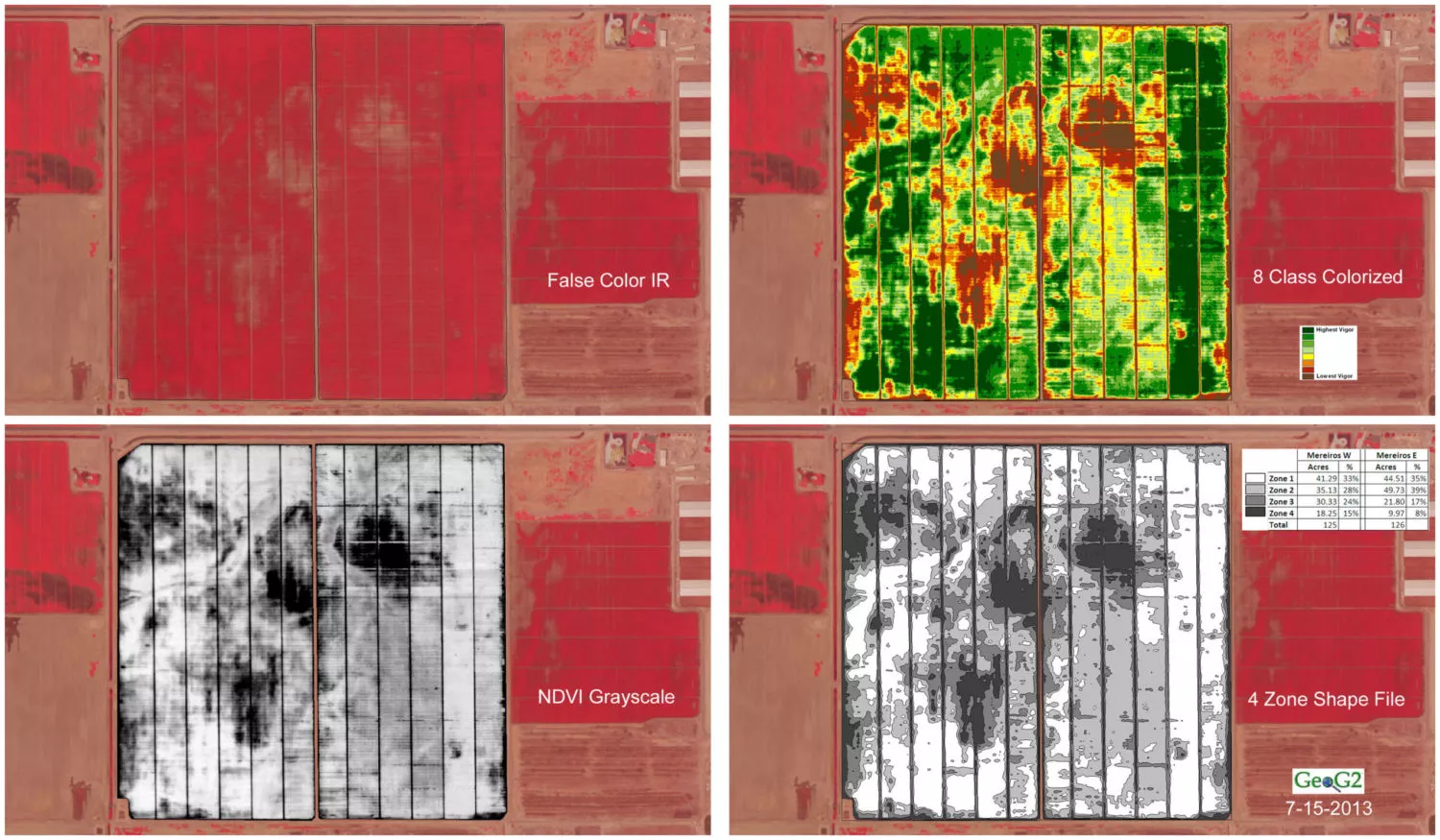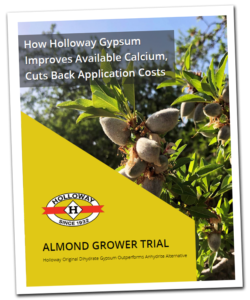By Holloway Ag
Data-driven solutions for soil health
Holloway’s agronomists partner with the grower, and/or the grower’s agronomist and PCA to use facts and science to derive the most cost-effective solutions to improve your yields.
We take a strategic approach to collecting soil, water, and tissue samples. Every field presents a unique challenge, and we collect samples based on both grower and agronomist knowledge.
In any given field or block we collect the necessary samples, which we then send to accredited labs for analysis. From there, we make soil amendment and/or nutrient recommendations based on the lab reports. Our agronomists are empowered to make material recommendations based on the needs of the grower — even if Holloway does not sell the recommended materials.
Scientific Solutions to Soil
Great soil does not happen by accident. By investing in the health and efficiency of your soil, you ensure the best possible environment to create maximum yield from your fields, season after season.
At Holloway, we offer additional soil analysis and agronomy services facilitated by data-driven tools. These include Lysimeter, Aerial imagery and Irrigation Monitoring which allow us to identify differing zones with pinpoint accuracy.
Infrared/NDVI Aerial Imagery
Using imagery to identify “good spots” (green) and “bad spots” (brown and red), Holloway’s agronomists are able to take intelligent samples from multiple areas to analyze the entire field. We use Google Earth and GPS tracking where the samples are taken so we can track exactly where soils were doing well or not.

Lysimeter and Irrigation Monitoring
What is a Lysimeter and what are its benefits to your field?
The Lysimeter device measures soluble nutrients found around the root zone, allowing agronomists to see the exact nutrients the crop is receiving. It works by being placed in the ground and acts like a root, picking up nutrients similar to how a plant would. This data is then analyzed by agronomists to determine soil nutrients, salts, pH imbalances, and irrigation inefficiencies that may cause crop harm before they do significant damage.
There are 3 big reasons to start using a lysimeter:
- During exceptional drought conditions where water is sparse and precious. Every drop has to work harder to produce healthy crops.
- Water resource regulation. Governments at the local and state level are continually modifying water regulation, whether it is for population changes, environmental concerns, or drought. Having a lysimeter ensures you are using your water smartly.
- You want to get higher crop yields. Lets say a field has hit a slump or plateaued, that may be because the soil is depleted of nutrients or the irrigation is inefficient. A Lysimeter can help identify the problem and give the agronomists the data to take action for higher yield.
Technology in agriculture is something the grower and ultimately, the consumer benefits from. By guiding our decisions using data, we are able to give the grower better recommendations based on the goals for their field, orchard, or vineyard.
Join Over 800 Companies Using Holloway Today.
Or Become Part of The Holloway Group to Further Your Career.

